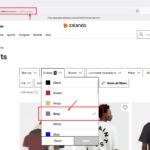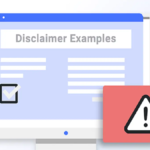Starting a business in Michigan can be an exciting venture, filled with opportunities in a state known for its diverse economy, from automotive innovation to growing tech sectors. But before you dive into operations, one crucial step stands out: conducting a thorough Michigan business entity search. This process isn’t just a formality it’s a foundational tool that helps entrepreneurs verify business names, check compliance, and avoid costly legal pitfalls. In a competitive market where over 900,000 small businesses operate, ensuring your entity is unique and properly registered can make the difference between smooth sailing and unexpected hurdles. Whether you’re launching an LLC in Detroit or a corporation in Grand Rapids, understanding how to navigate this search empowers you to build on solid ground. This guide breaks it down step by step, offering practical insights to help you succeed.
What is a Michigan Business Entity Search?
A Michigan business entity search for Entrepreneurs is an online query through the state’s official database to locate information about registered businesses. Managed by the Michigan Department of Licensing and Regulatory Affairs (LARA), this tool allows users to look up details like entity names, registration status, filing history, and key officers. It’s essentially a public record check that reveals if a business name is available or already in use, helping prevent trademark conflicts or identity mix-ups.
This search covers various entity types, including corporations, limited liability companies (LLCs), partnerships, and nonprofits. For entrepreneurs, it’s not only about name availability but also about gaining insights into competitors or potential partners. For instance, you might discover a similar business in Ann Arbor that’s inactive, opening doors for revival or inspiration. The database is updated regularly, ensuring real-time accuracy for decision-making.
Beyond basic lookups, advanced searches can filter by entity ID, individual names (like officers or agents), or even assumed names (DBAs). This depth is vital in Michigan, where business formations have surged post-pandemic, with thousands of new entities filed annually. By using this resource, you’re tapping into a transparent system designed to foster fair competition and regulatory compliance.
Why Perform a Business Entity Search in Michigan?
Conducting a Michigan business entity search is more than a checkbox it’s a strategic move for any entrepreneur. First and foremost, it ensures your chosen business name is unique, which is required by state law to avoid confusion in the marketplace. Imagine investing in branding only to face a cease-and-desist letter because your name mimics an existing entity. This search helps dodge that bullet early.
For due diligence, it’s invaluable. If you’re buying an existing business or partnering with one, verifying its good standing confirms it’s compliant with annual reports and fees, reducing risks of hidden liabilities. Entrepreneurs often use it to research market gaps; for example, searching for “tech startups in Lansing” might reveal underserved niches.
Compliance is another key reason. Michigan mandates that all entities maintain distinct names, and failing to check can lead to rejected filings or fines. In a state with a robust entrepreneurial ecosystem supported by resources like the Michigan Small Business Development Center this search aligns with best practices for long-term success. It also aids in trademark protection, as state registration can bolster federal claims.
Moreover, for investors or lenders, a clean search result builds credibility. It shows you’ve done your homework, potentially easing access to funding. In essence, this simple process safeguards your venture, informs strategy, and positions you for growth in Michigan’s dynamic business landscape.
Step-by-Step Guide to Conducting a Michigan Business Entity Search
Navigating the Michigan business entity search is straightforward with the right approach. Here’s a detailed walkthrough to get you started efficiently.
Step 1: Access the Official Portal
Begin by visiting the MiBusiness Registry Portal, the official site hosted by LARA at michigan business entity search. This is the most reliable source, updated as of June 2025 with enhanced features for online filings and searches. Avoid third-party sites to ensure data accuracy and security. No login is needed for basic searches, but you’ll need an account for advanced actions like ordering certificates.
Step 2: Choose Your Search Type
On the portal, select from options like “Search by Entity Name,” “Search by Entity ID Number,” or “Search by Individual Name.” For name availability, start with Entity Name it’s the most common for new entrepreneurs. Use keywords wisely; for example, if your proposed name is “Great Lakes Tech LLC,” search variations to check conflicts.
Step 3: Enter Search Parameters
Input your query without punctuation or designators like “LLC” initially for broader results. The system is case-insensitive but distinguishes between similar names based on state rules. Hit “Search” and review the list. If no exact matches appear, your name might be available but double-check for phonetically similar ones.
Step 4: Review and Analyze Results
Results display entity details like status (active, dissolved), formation date, registered agent, and address. Click on an entry for full filings. Note any “assumed names” that could overlap. If your name is taken, brainstorm alternatives and search again.
Step 5: Verify and Proceed
For confirmation, request a certificate of good standing if needed (fees apply). Once clear, file your formation documents via the same portal. This integrated system streamlines the process for efficiency.
Following these steps typically takes under 10 minutes, but thoroughness pays off in avoiding delays.
Types of Business Entities in Michigan
Michigan offers several entity structures, each with unique benefits suited to different entrepreneurial goals. Choosing the right one impacts taxes, liability, and operations. Below is a comparison table to help you decide.
| Entity Type | Description | Pros | Cons | Best For |
|---|---|---|---|---|
| Sole Proprietorship | Simplest form; owner and business are one entity. No formal filing needed. | Easy setup, full control, pass-through taxes. | Unlimited personal liability, harder to raise capital. | Freelancers, small service-based businesses. |
| Partnership | Two or more owners sharing profits/losses. Includes general and limited types. | Shared resources, pass-through taxes. | Joint liability in general partnerships. | Professional firms like law or accounting practices. |
| Limited Liability Company (LLC) | Flexible hybrid; protects personal assets. Requires articles of organization. | Liability protection, tax flexibility. | Filing fees, ongoing compliance. | Most startups due to balance of protection and simplicity. |
| Corporation (C-Corp) | Separate legal entity; can issue stock. | Limited liability, easy to attract investors. | Double taxation, more regulations. | Larger businesses aiming for growth or IPO. |
| S-Corporation | C-Corp with pass-through taxation; limits on shareholders. | Avoids double taxation, liability shield. | Strict eligibility (e.g., U.S. citizens only). | Small to medium businesses wanting tax benefits. |
| Nonprofit Corporation | For charitable, educational purposes; tax-exempt. | Tax exemptions, grants eligibility. | No profit distribution, heavy paperwork. | Charities, schools, community organizations. |
Understanding the Search Results
Interpreting results from a Michigan business entity search requires attention to detail. Key fields include:
- Entity Status: “Active” means compliant; “Dissolved” indicates closure. “Expired” might allow revival.
- Registered Agent: The contact for legal notices ensure it’s current for any entity you’re researching.
- Filing History: Shows amendments, annual reports. Gaps could signal issues.
- Assumed Names: DBAs that might conflict even if the formal name differs.
If results show a similar name, check Michigan’s distinguishability rules: minor variations like “Inc.” vs. “Incorporated” don’t count as unique. For deeper insights, cross-reference with federal trademark searches via USPTO.gov.
Common Mistakes to Avoid in Michigan Business Entity Searches
Even seasoned entrepreneurs slip up here. One frequent error is not broadening the search—using exact phrases misses variations like plurals or abbreviations. Another is ignoring restricted words (e.g., “Bank” without approval), leading to rejections.
Relying solely on state searches is risky; always check federal trademarks and domain availability to prevent broader conflicts. Procrastinating the search until after branding investments wastes resources. Also, assuming a dissolved entity’s name is free—Michigan may require waiting periods.
Finally, overlooking annual compliance in results can mislead; an active status doesn’t guarantee no pending issues. Avoid these by searching early and often.
Additional Resources for Michigan Entrepreneurs
Beyond the search, leverage tools like the Michigan Entrepreneur’s Guide for formation tips. For funding, explore the Michigan Economic Development Corporation (medc.michigan.org). Legal advice? Connect with the State Bar of Michigan. Online communities like Reddit’s r/MichiganBusiness offer peer insights.
FAQ
What is the official website for Michigan business entity search?
The MiBusiness Registry Portal at is the go-to site, managed by LARA.
How do I check if a business name is available in Michigan?
Use the entity name search on the portal; if no matches appear, it’s likely available, but confirm with a full review.
Can I search for Michigan LLCs specifically?
Yes, filter by entity type in advanced searches or include “LLC” in keywords.
What information do I get from a Michigan corporation search?
Details include status, officers, address, and filing dates.
Is there a fee for conducting a business entity search in Michigan?
Basic searches are free; certificates or copies incur fees starting at $10.
How often should I perform a business name search in Michigan?
At least before filing, and annually to monitor changes or infringements.
What if my desired name is taken?
Modify it to make it distinguishable, like adding a location or descriptor, then re-search.
Conclusion
Mastering the Michigan business entity search equips entrepreneurs with the knowledge to launch confidently, from verifying names to understanding entity types. By following the steps outlined, avoiding common pitfalls, and using resources wisely, you’ll set your venture up for success in the Great Lakes State. Ready to start? Head to the official portal today and take that first step toward building your dream business. For personalized guidance, consult a local attorney or business advisor.













